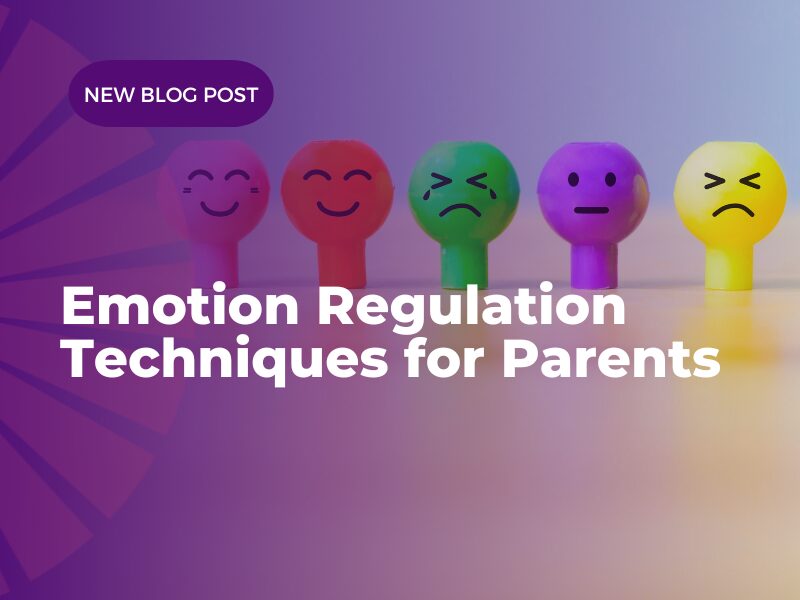Emotion Regulation Techniques for Parents

When someone is feeling big emotions, it can be difficult to help them.
Emotion regulation is part of the 4 Dialectical Behaviour Therapy (DBT) skills that help us to better understand ourselves and our emotions. The basic principle behind emotion regulation is to teach us how we can be comfortable and accepting of our emotions so that when we are emotionally heightened, we can choose how we react to our situations, instead of having emotions choose for us.
For parents, there are a few things you can do at home to help your children understand simple emotion regulation skills. Here are some strategies you can try out:
1. Validation
When your child is experiencing heightened emotions, it’s important to validate their feelings. By expressing an understanding of why your child may feel a certain way, you can help to de-escalate tense situations and allow for a calming period to occur. Respond with empathy and provide 3 reasons why your child may be feeling that way in order to completely validate their emotions. For more on these tips visit our blog post on emotion coaching.
2. Role Modeling
Children look to their parents or caregivers as examples. Modeling positive behaviour can have a powerful and positive impact on children’s behaviour and help with emotion regulation. As a parent or caregiver, try to practice healthy coping mechanisms like deep breathing, mindfulness activities, relaxation techniques, and other forms of self-care.
3. Practicing delayed reactions
Encourage children to pause before they react. These pauses can help children’s heightened emotions, or fight-or-flight response, settle down. When they are in a calm state, healthy coping mechanisms and problem-solving are better supported.
4. Labelling Emotions
It can be hard for children to express how they’re feeling, especially if they don’t know the emotion they’re experiencing. Having feeling wheels handy can help you navigate the wide array of emotions your children may be feeling. Feeling wheels are also a great way to help children learn and understand emotions. Try asking them what they’re feeling or have them point to the feeling on the wheel to help them learn how to label their emotions on their own.
Checking in regularly about your child’s feelings will help keep communication open, and remember you are not alone as a parent. Not all strategies may be the right fit because everyone is different, but support is available for yourself and your family through Front Door (519-749-2932).
Further Resources on Emotion Regulation:
Instagram Feed
“Since being housed, I have been able to work towards many of my goals, I have addressed my health concerns, and I have been able to strengthen many of my relationships.”












